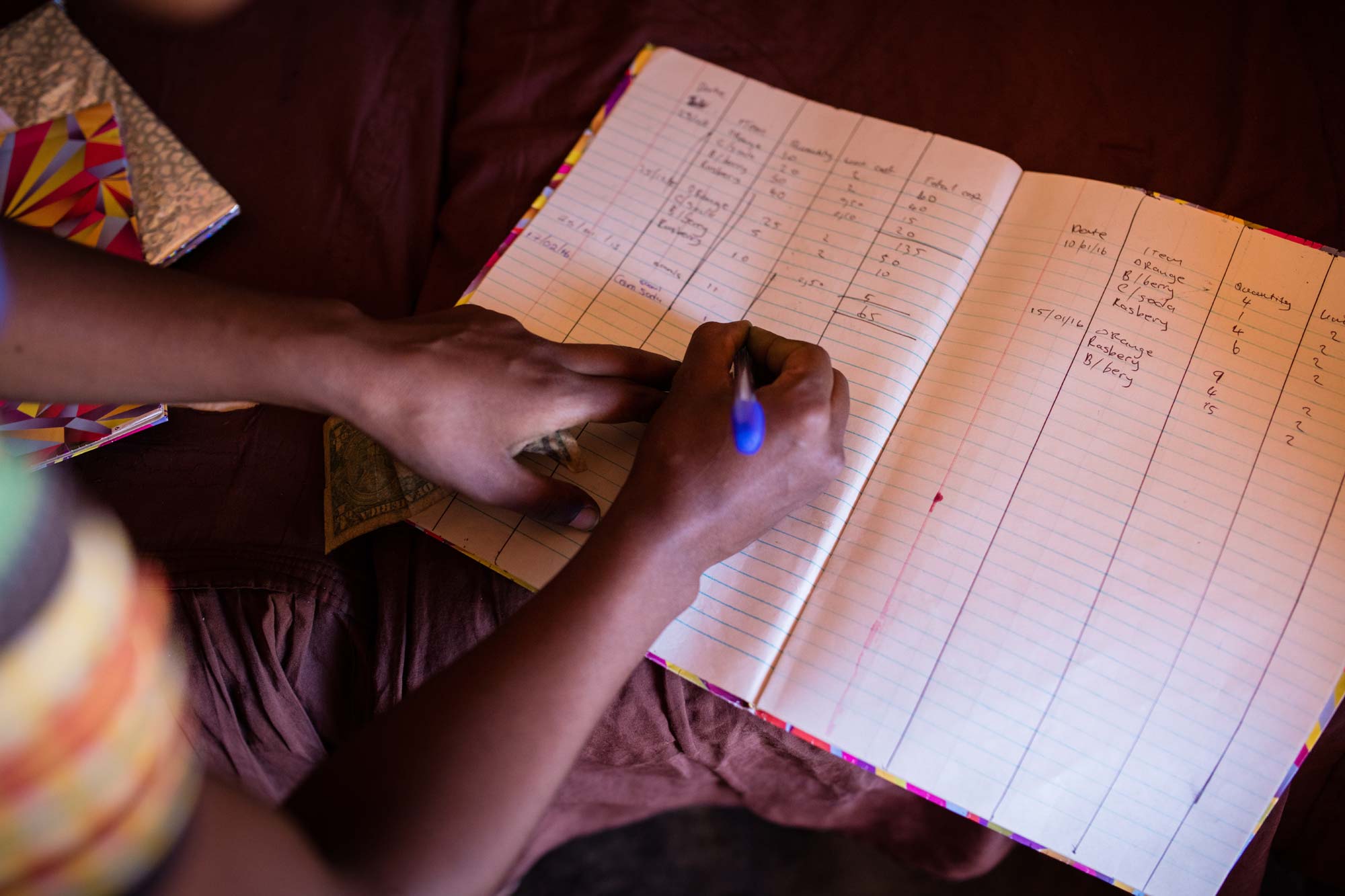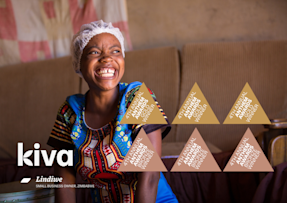Lindiwe, 22, beams with pride as she presents bottles of her homemade juice and soda to customers at her shop in rural Zimbabwe. Each bottle has a hand-glued label that reads ‘Lee Juice,’ inspired by her nickname. She has big plans to make it a household name.

“I want my name to go far!” she says. “I want to create as many employees as I can, especially girls. Girls are so important to me.”
Lindiwe feels strongly about girls in part because of her own struggles growing up with very little money. Her mother is a widow, and Lindiwe remembers going to school hungry, without shoes, and without a single pen or pencil to write with. She wants to be a role model to show girls what is possible when they persevere in education and work hard.
Lindiwe now operates 3 businesses in her village — a poultry business, a small shop and Lee Juice — all under an umbrella company she named Lee Investments. Her business savvy and work ethic is clear in everything from her bookkeeping to her pricing.

“I did market research and thought about what people wanted,” says Lindiwe.
She thought about the thirsty laborers working at the mine near her village and asked herself how she could have a competitive advantage for something they needed. So she started making her own juice and soda from scratch, and priced it at half the price they would pay for a national or international brand.
Her plan worked. With the business training and guidance provided by Kiva’s Field Partner Camfed, and a $500 loan crowdfunded on Kiva by 11 lenders, her business grew quickly.
“The loan boosted this business up. I used to make only 20 liters a week, only 20!” she says. “Now I’ve expanded to 200 liters a week.”
 Lindiwe leaving her store, where she sells Lee Juice, dried goods and home staples like soap.
Lindiwe leaving her store, where she sells Lee Juice, dried goods and home staples like soap.Through Camfed’s unique lending model, Lindiwe doesn’t pay any interest on her loan, but instead volunteers as a mentor and teacher for other young women in her community. It’s a way of paying social interest on the loan, but it’s also something Lindiwe loves doing.
“Helping girls to stay in school, helping them to achieve what they want in life, that is my favorite part,” she says.
The loan also motivated Lindiwe to create her first savings account, a mobile banking account controlled through her cell phone. She likes keeping her money in the account, instead of in the house, so she can be deliberate about how she spends it.
“The pin number [for the account] stays with me. The access to the money stays with me,” she says. “No one else has that, even my husband.”
With her business success, Lindiwe has seen a change in how she feels about herself, and her standing in her community.
“I am independent…and if I am independent I can do anything that I want at any time,” she says. “If I want to help someone who is in need I can just take my money and help.”
Lindiwe is currently training 1 woman from her community to work with her, and has started saving $10 each month from her profits for her future. With the rest of her profits, she wants to expand her production and also add a large run to her poultry house.

Her advice to other young women around the world who want to be successful is to work hard and don’t have regrets.
“It’s you who make your life,” she says. “Success is in our hands.”
It’s advice she will repeat to her own first child—boy or girl—due this summer.
Story by Talea Miller. Photos by Brandon Smith.
PREVIOUS ARTICLE
Women weavers, entrepreneurs find strength in numbers in Guatemala →NEXT ARTICLE
Two sisters in Cambodia building on each other’s success →














